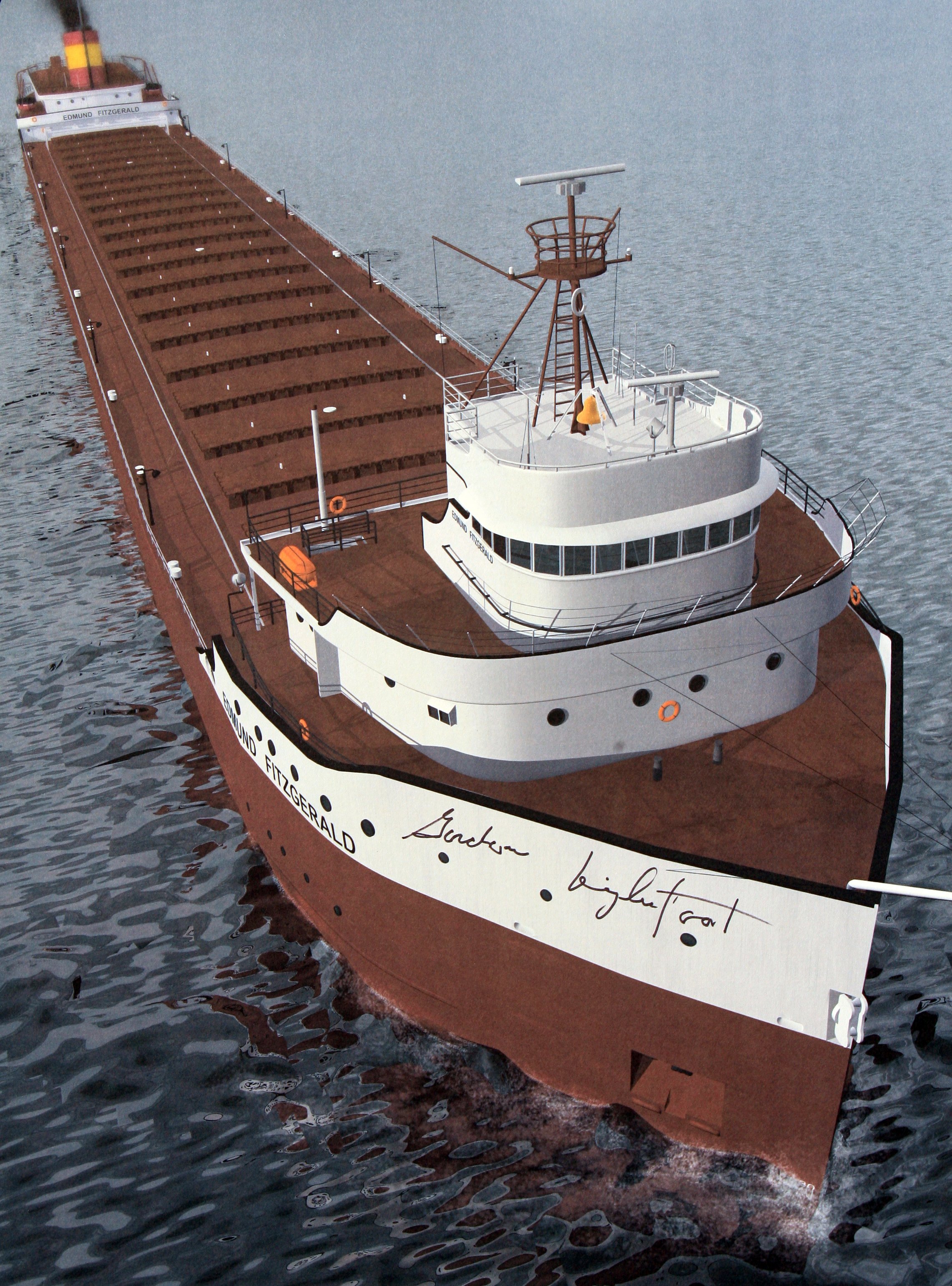(USA TODAY) -- Forty years ago, on Nov. 10, 1975, the freighter Edmund Fitzgerald sank during a ferocious storm on Lake Superior, killing all 29 men aboard.
![XXX GPNDC5-5WY3GZJUMOX1K787A43T_ORIGINAL.JPG USA MI [image : 75453694]](http://www.gannett-cdn.com/-mm-/c545e78fcf40e1bff0d3bcfdb796eebdfb34ce80/c=0-506-2274-2450/local/-/media/2015/11/09/USATODAY/USATODAY/635826641169801873-XXX-gpndc5-5wy3gzjumox1k787a43t-original.jpg)
The shipwreck was soon to be made famous in the haunting song by Canadian songwriter Gordon Lightfoot, The Wreck of the Edmund Fitzgerald, which was released the year after the sinking.
In the song, the disaster was blamed in part on the "Witch of November," which is the source of memorable and fierce storms on the Great Lakes.
"When the witch angrily stirs her cauldron, no ship, no matter how large, is safe on the Great Lakes," according to a 1998 article in Weatherwisemagazine by meteorologist Steve Horstmeyer and geographer Mace Bentley. The Edmund Fitzgerald remains the largest of all the ships wrecked or sunk by bad weather in the Great Lakes.
"The legend lives on from the Chippewa on down
Of the big lake they call Gitche Gumee
The lake, it is said, never gives up her dead
When the skies of November turn gloomy." — Gordon Lightfoot
Incredibly, in the past 300 years, about 30,000 people have died in 10,000 shipwrecks on the Great Lakes, the Rev. William Fleming told the Detroit News.
Fleming is the pastor of the Mariners' Church of Detroit, which was mentioned in the Lightfoot song. A service was held there Sunday to remember victims from all disasters and tragedies on the Great Lakes, including the loss of the Fitzgerald.
![The Edmund Fitzgerald departed Superior, WI at 2:15pm on 11/9/1975 on its final [oembed : 75516948] [oembed : 75516948]](/Portals/_default/Skins/PrestoLegacy/CommonCss/images/smartembed.png)
The Edmund Fitzgerald was loaded with about 26,000 tons of taconite pellets on Nov. 9, 1975, at Superior, Wis., and was bound for Detroit, according to the Associated Press. The pellets are an intermediate product in iron mining.
As the season shifts toward winter, the polar jet stream begins to shift south and can stir up storms that produce howling winds and gigantic waves in November on the Great Lakes.
This makes it the most dangerous time of year for shipping, according to Bentley, now a professor at James Madison University. About 40% of all the Great Lakes shipwrecks have occurred in November.
"The wind in the wires made a tattle-tale sound
When the wave broke over the railing
And every man knew, as the captain did too
'Twas the witch of November come stealin.'"
"In late autumn, the harvest must make it to market and industry must receive enough raw materials to operate throughout the winter," Horstmeyer and Bentley wrote in the Weatherwise article. So there's a flurry of shipping activity when the weather is at its most volatile, before the lakes freeze over for the winter.
Storms on the Great Lakes can rival hurricanes in their intensity. The one that sank the Edmund Fitzgerald had sustained winds of 67 mph, gusts of up to 86 mph and waves reported up to 35 feet, according to another vessel in the area that survived the storm.
The Fitzgerald was in the worst possible location during the worst weather of the storm. The wind and waves from the west hit the freighter broadside as it tried to flee south to safety in Whitefish Bay.
The ship sank in 530 feet of water about 17 miles from Whitefish Bay, near the cities of Sault Ste. Marie, Michigan, and Sault Ste. Marie, Ontario.
"They might have split up or they might have capsized
They may have broke deep and took water
And all that remains is the faces and the names
Of the wives and the sons and the daughters..."
![Rare photos: Edmund Fitzgerald [gallery : 18642865]](http://www.gannett-cdn.com/-mm-/f6b23cbb1253ab2dc0cd8e3e5bca52da3dc0cb33/c=76-0-1824-1494/local/-/media/DetroitFreePress/DetroitFreePress/2014/11/07/635509543365270844-Edmund-Fitzgerald21.jpg)
![DAILY LINKS [embed : 72557012]](/Portals/_default/Skins/PrestoLegacy/CommonCss/images/embed.jpg)


